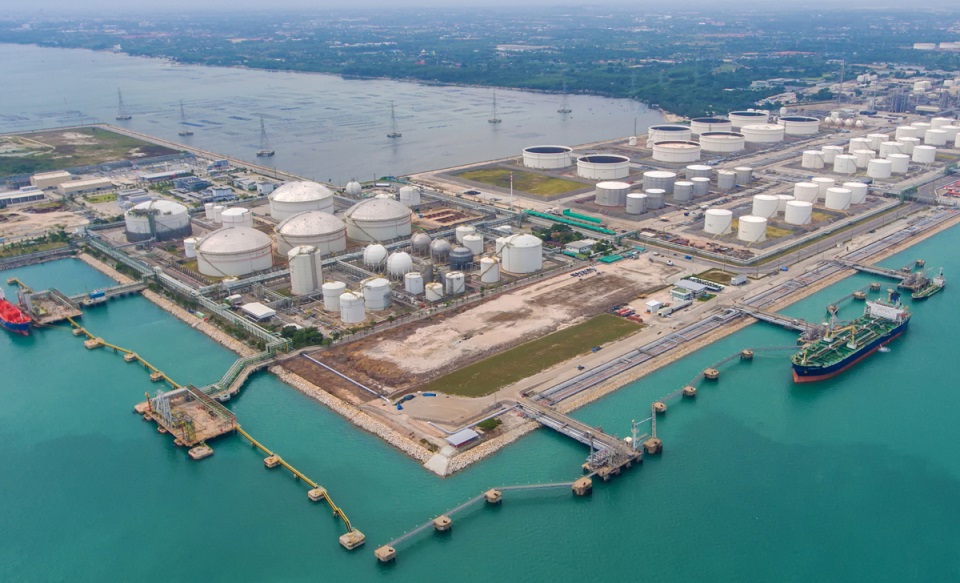Azerbaijan’s state-run energy conglomerate SOCAR will be injecting new blood into the Mediterranean petrochemical industry when the STAR Refinery complex goes online after the complex’s construction is complete.
"One of the targets we set is to process various brands of oil mainly Urals, Azeri Light, and Kirkuk at the plant,” SOCAR President Rovnag Abdullayev said in an interview with Xalq newspaper on the occasion of Oil Workers Day on Thursday, according to Oxu.Az.
“After putting the plant online, significant raw materials will be produced for the manufacture of many products, which will further enhance the economic effectiveness of Petkim. STAR is primarily intended to provide Petkim with raw materials [light and heavy naphtha]. Abdullayev said. The plant is located in Aliaga, a port town along Turkey’s Aegean coast, near Izmir.
September 20 is celebrated annually in Azerbaijan as a holiday for those who are affiliated with or involved in the domestic oil industry – the world’s first country to have one. The day has its roots in the signing of a milestone agreement in 1994 when representatives from 11 international oil companies from seven countries gathered in Baku to ink a deal that reshaped Azerbaijan’s role in the global energy market.
The contract, known as the Agreement on the Joint Development and Production Sharing for the Azeri and Chirag Fields and the Deep Water Portion of the Gunashli Field in the Azerbaijan Sector of the Caspian Sea, fetched nearly $33 billion in investments to develop the off-shore oil reserves. More than three billion barrels of oil have been extracted from the fields through 2017, and officials have dubbed the agreement ‘the contract of the century’ for Azerbaijan.
The STAR Refinery is now one of SOCAR’s largest investments, aimed primarily at reducing Turkey’s dependence on foreign processed oil products by $2.5 billion and meet more than 25 percent of the domestic market’s needs. The $6.3 billion refinery, which broke ground in 2011, is set to open in October. The facility is expected to process over 10 million tons of crude oil, including 1.6 million tons of naphtha and 4.8 million tons of diesel, jet fuel, LPG, and the raw material feedstock for the Petkim petrochemical factory.
SOCAR acquired a 51 percent share in the facility on a $2.04 billion tender deal in 2008, and has teamed up with Turkey’s Petkim, which churns out 12 different petrochemical products including low-density polyethylene, high-density polyethylene, polypropylene, polyvinyl chloride, ethylene glycol, purified acid and aromatic hydrocarbons. All of these products have uses in construction, agriculture, electricity, electronic, textiles and medicine, amongst others.
SOCAR has allocated 80,000 tons of Azeri Light oil for testing and adjusting the plant prior to its official opening in October. Meanwhile, SOCAR will be the major supplier of raw material to the refinery, which includes crude purchased from Russia.
“Based on the recently signed agreement between SOCAR and Rosneft, STAR plant is expected to receive one million ton of Russian oil for a period of one year starting in December,” Abdullayev said. "The contract will create additional security for SOCAR's stable supplies to new oil refineries in Turkey.”
The deal between SOCAR and Rosneft was inked on September 1 during Azerbaijani President Ilham Aliyev’s official visit to Russia.
Twenty percent of Turkey’s current need for petrochemical products is met by Petkim and the remaining 80 percent comes from countries such as Russia, Greece, and Romania. Imported petrochemicals account for 30 to 35 percent of the country’s current account deficit. In 2016, Turkey imported petrochemical products worth at $13.5 billion, including mainly propylene polymers, ethylene polymers, and rubber, according to data compiled by Observatory of Economic Complexity, a site that provides a visual narrative about countries and products they exchange.
Petkim is able to process only 250 thousand tons of raw materials that will be supplied from STAR Refinery. Executives at the company are planning to put the remaining 750,000 tons of petrochemicals into processing in a new plant that will reportedly be operational sometime in 2022. After the second factory comes online, Turkey will reduce its dependence on foreign markets by additional 20 percent, meaning Petkim will help curtail imports by 40 percent through domestic productions.







 Azerbaijan and Armenia started the process of demarcation of their border on Tuesday, with the installation of the first border markers based on ge...
Azerbaijan and Armenia started the process of demarcation of their border on Tuesday, with the installation of the first border markers based on ge...
 President Aliyev emphasized the critical role of the North-South Transport Corridor in fostering transport cooperation between Azerbaijan and Russi...
President Aliyev emphasized the critical role of the North-South Transport Corridor in fostering transport cooperation between Azerbaijan and Russi...
 Russian Foreign Minister Sergei Lavrov has reasserted that Moscow has no intentions to stop the fighting in Ukraine, even if peace talks commence.
Russian Foreign Minister Sergei Lavrov has reasserted that Moscow has no intentions to stop the fighting in Ukraine, even if peace talks commence.
 Iran has refuted reports of alleged damage to Shimon Peres Negev Nuclear Research Centre located southeast of Dimona, Israel, during the recent air...
Iran has refuted reports of alleged damage to Shimon Peres Negev Nuclear Research Centre located southeast of Dimona, Israel, during the recent air...
 Iran and Pakistan have signed eight cooperation documents in various fields, and agreed to strengthen ties to fight terrorism in the region.
Iran and Pakistan have signed eight cooperation documents in various fields, and agreed to strengthen ties to fight terrorism in the region.



